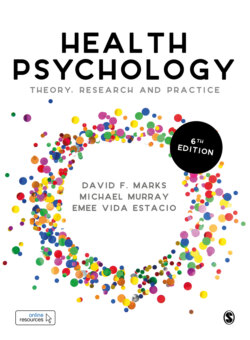Читать книгу Health Psychology - Michael Murray - Страница 102
На сайте Литреса книга снята с продажи.
Racism and health
ОглавлениеRacism contributes to poor mental and physical health among migrants, ethnic minority groups and indigenous peoples. Research evidence suggests that everyday experiences of discrimination are related to stress that can potentially lead to chronic illnesses. Even after controlling for factors such as perceived neighbourhood unsafety, food insecurity and financial stress, these associations were consistent across various ethnic groups (Clark et al., 1999; Earnshaw et al., 2016b). Strong associations were also shown between racial discrimination and psychological distress (Halim et al., 2017). Anderson (2013) used data from the 2004 Behavioral Risk Factor Surveillance System (BRFSS) to examine the relationship between stress symptoms from perceived racism and overall health (n = 32,585). The analyses suggest that stress from perceived racism can have substantial negative consequences that contribute to poor mental and physical health in adults. Among young people, Grollman (2012) used data from the African-American Youth Culture Survey (n = 1,052) to examine the prevalence, distribution, and mental and physical health consequences of multiple forms of perceived discrimination. Findings suggest that young people from disadvantaged backgrounds are more susceptible as a result of experiencing multiple forms of discrimination than their more privileged counterparts. As with the findings from the adult population, a systematic review showed that the relationship between perceived racial discrimination and mental health can be observed among children and young people from minority ethnic groups (Priest et al., 2013).
Health-limiting behaviours, such as poor diet, smoking and increased alcohol intake, can also manifest as a response to the chronic stress of racism. For example, low socio-economic status, racial discrimination and low acculturation (i.e., being immersed in African-American culture and communities) are known to be the major socio-cultural correlates of smoking among African-American adults (Landrine and Corral, 2014). Bermudez-Millan et al. (2016) also found that while lower income predicted lower physical activity as well as poorer sleep quality and medical adherence, racial discrimination was associated with increases in food intake and alcohol consumption.
Landrine et al. (2016) tested whether racial discrimination can negatively influence a person’s self-reported health and whether they will rate it in terms of social instead of health indicators. They surveyed 2,118 African-Americans and found that the majority of their respondents (81.8%) rated their health as good/excellent, while only a relatively small proportion (18.2%) rated it as poor/fair. They also found that racial discrimination did not contribute to poor self-reported health, even after controlling for demographic factors. Findings also indicate that self-reported health was associated with objective health and was more strongly linked in the low- than the high-discrimination group.
Imposing culturally insensitive health promotion activities may exacerbate the social exclusion that is already being experienced by minority ethnic groups. Ochieng (2013) conducted a qualitative study exploring the beliefs and perceptions of healthy lifestyle practices among African-Caribbean men and women. In-depth interviews were conducted with 18 participants from the north of England. Findings suggest that participants felt that messages around healthy lifestyle practices were not applicable to their everyday lived experiences since these often ignored issues related to their experiences of social exclusion, racism and ethnic identity. Health promotion programmes that use individualistic approaches are inappropriate for, and isolate, those from ethnic minority communities who practise more collectivist traditions to express their beliefs, values and identity. Thus campaigns that try to promote healthy lifestyles need to consider socio-economic and cultural contexts, including issues related to disadvantage, racism and marginalization, to enable African-American and other minority ethnic groups to incorporate these messages and practices into their everyday lives (see Chapter 16).
